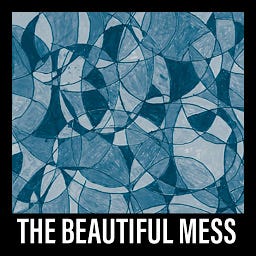I recently chatted with an experienced product manager friend, and he asked me about a popular framework. "I can't believe it's an actual thing," he mentioned. "The concept is so core to good product management that I don't understand why people need a specific framework to describe that one concept."
His response got me thinking. I could see what he was saying. Over the years, I've seen people (me included) organically invent countless variations of this particular framework as part of their day-to-day job.
But here is what he was missing.
It is tough to remember what being a beginner feels like
Only some people work with skilled product managers who can role-model good practices.
Even if you intuitively "get" something early in your career, it still makes a huge difference to see that intuition validated (even with a simplistic framework)
These are all good things.
The danger comes when companies lose sight of the fact that many frameworks are teaching frameworks. They emerged when someone said, "ok, this is what we arrived at organically; how would I explain to someone else what we do?" Or "how would I teach someone what we do?" Companies pay millions of dollars to "implement" frameworks that were never meant to be implemented—the framework was meant as a starting point.
The next issue is that teams tend to gloss over underlying skills when they see the framework as the end goal. It's one thing when the framework teaches those skills, allows people to practice, and encourages them to shed the framework eventually. That's good! But many frameworks don't. Why? Most product experts are not skilled learning experience designers and teachers. Unpacking your own tacit/implicit skills is challenging. It's tempting to think:
"If I could make a simple framework, then people would be able to do what I do."
It is much harder to figure out all the critical areas of knowledge and skill and create conditions where people can practice. With the right teacher (and opportunities to practice), frameworks can accelerate performance. Stand-alone, they don't work as well; at best, they serve as a "job aid"—helping reduce cognitive load while reducing errors. But they don't teach.
So:
Yes, seemingly derivative and "common sense" frameworks can be helpful
And be very intentional about how you use frameworks. In my experience, the most successful teams mix and match many frameworks and models—and invent many frameworks and models—to do great work




There's also a tendency to reinvent the wheel - or at least rerun whole arguments repeatedly - within organisations. Having a framework there is like a process ADR.
Great article John. This is such a core statement:
"It's one thing when the framework teaches those skills, allows people to practice, and encourages them to shed the framework eventually."
The only "frameworks" that should be considered persistent are really more like principles, such as Mission Command. If any framework is framed (ha!) as an end goal, then I feel that it's either been poorly interpreted, or there's money behind it.